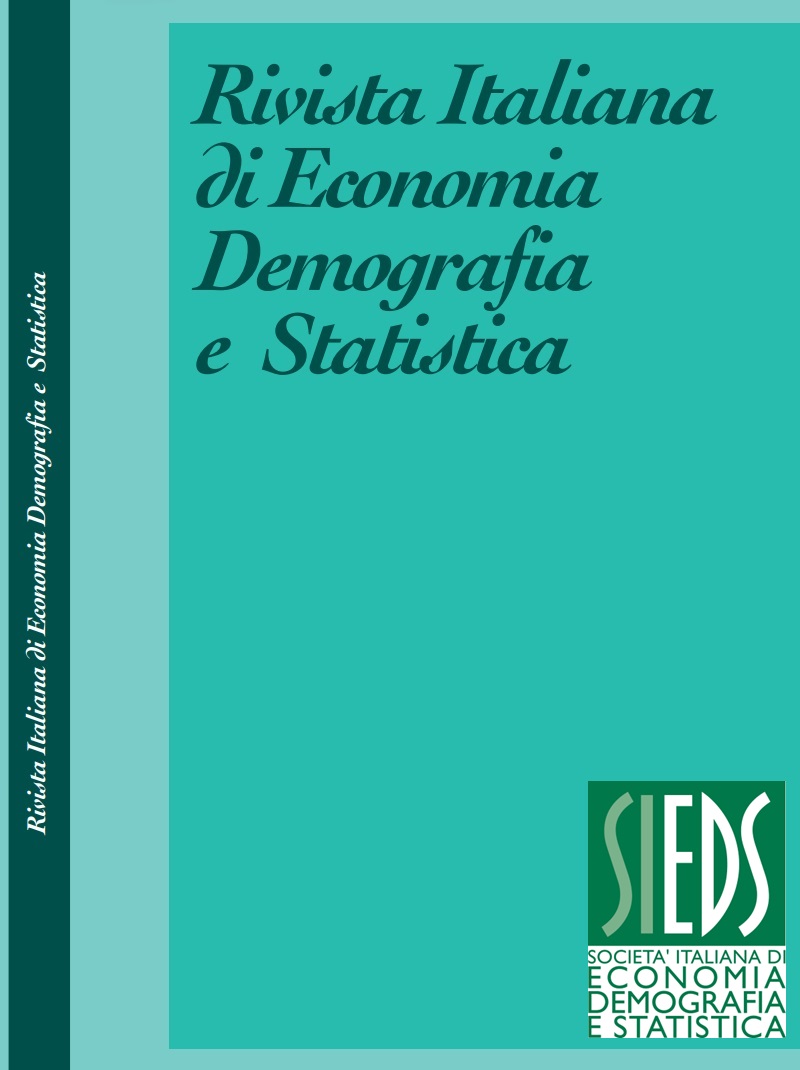Safety at work in Italy in a gender approach: psychosocial risks
Abstract
Despite the improvement in the female employment rate in recent years, up to the 2020 pandemic crisis, gender gaps in the Italian labour market are still evident, if not more pronounced following the Covid-19 pandemic. However, women's disadvantage is not only measured in the levels of employment and unemployment, but also in the type of occupation performed. In 2020, 50.9% of female employment is concentrated in only 19 occupations (men in 51 occupations). The different structure of male and female employment, with the strong horizontal and vertical segregation of women, has effects on occupational health and safety conditions at work. A gender approach is certainly useful in highlighting the peculiarities of certain work contexts and types of occupations. The aim of this study is to analyse the different likelihood of males and females to become ill with stress, depression or anxiety for work-related reasons and to perceive psychological health risks by investigating certain occupational groups, the created “job families' such as management and entrepreneurial occupation, health occupations, those in the security or trade sectors. The analysis is based on data from the ad hoc module 'Health and safety at work' included in the Labour Force Survey in the year 2020. The module collected information on accidents at work, health problems and perceptions of various risk factors for physical and psychological health in the workplace. It emerges that female workers are more critical than male workers for certain occupational groups. Overall, women suffer significantly more from stress than men and are more exposed to psychological health risk factors. In particular, women workers in healthcare, transport and storage, security and businesswomen and managers in public administration. Among the psychological risk factors for these categories, excessive workload, having to deal with difficult people, such as clients, patients and students, and being bullied or harassed are particularly felt. Above all highlighted are the unsafe conditions for psychological health in the health professions, particularly affected by the pandemic, where female disadvantage is even more pronounced.
Downloads
Published
Issue
Section
License
Copyright (c) 2023 Barbara Boschetto, Eugenia De Rosa, Antonella Iorio

This work is licensed under a Creative Commons Attribution 4.0 International License.



